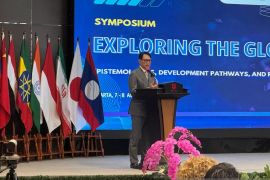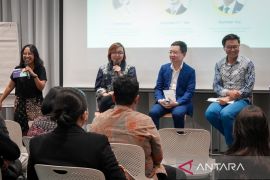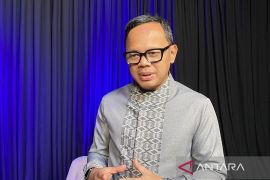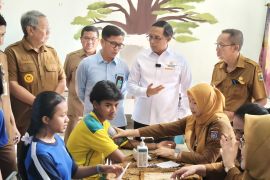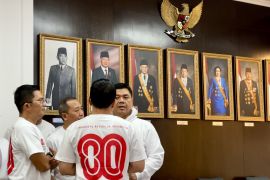"At present, every country faces a huge challenge concerning food resilience," Slamet Soebjato, director general of aquaculture of the ministry, said here, Monday.
The rapid population growth has triggered an increasing demand for food, he said.
The ministry has been doing efforts to increase food production in the fishery sector, among other things by expanding land productivity and carrying out accountable and sustainable management, he noted.
Meanwhile, President Joko Widodo (Jokowi) has believed that it is the food sector and not politics and law that will hold the reins of power in future.
"Those who have food will hold the reins," the president stated in his oration at the open session of the anniversary of the Bogor Institute of Agriculture, in Bogor, West Java, on Sept 6, 2017.
He said countries, in future, will compete to gain control over food, energy, and water, so it is necessary for the state to prepare logistics to make it resilient from being conquered.
"Without adequate logistics, the country can easily be conquered, as in future, food and not politics or law will have a commanding authority," he pointed out.
Hence, new paradigms and innovations in the food sector need to be made.
"Without this, it is difficult for us to compete with other countries," he added.
He reminded that Indonesia needs to adapt to the fast global changes if it does not want to lose its competitive edge.
The president admitted to often reminding his ministers about food-related issues. He cited as an example the fishermen who were unable to tackle the problem of trawls for years.
"Trawl problems have been faced for years, but they remain unresolved. However, the world has now shifted to offshore aquaculture. Why are we not able to adapt to these changes?" he questioned.
The head of state emphasized that fishermen should be imparted education, so that they can develop offshore aquaculture, and the problem of trawls can be solved.
In the agricultural sector, the president remarked that farmers will be able to enjoy added value by forming cooperatives to ensure that they are able to benefit from their agricultural plantations.
He admitted that most farmers in Indonesia have small land holdings, measuring some 0.25 - 0.3 hectares per farmer.
Fishermens, animal breeders, and farmers cooperatives need to be formed to improve their welfare, he added. (*)
Editor: Heru Purwanto
Copyright © ANTARA 2017


